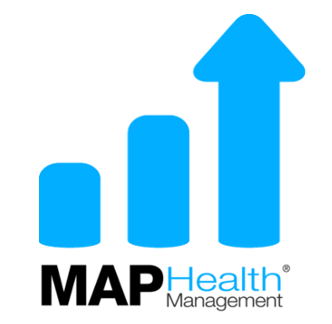Evolving Health Care: Surviving and Thriving in the New Behavioral Health Paradigm
September 15, 2015 Ali Bagheri
In our ever-evolving system of working to streamline the delivery of health care, the nation’s direction is moving toward precision quality care. The new model of patient-powered research will provide opportunities to better measure chronic disease and tailor treatment to the individual. The new regulatory and reimbursement framework built upon accountable care, technology and data collection necessitates private and public reporting of outcome measures in order for providers to survive and thrive. Measurement is impossible without data, and with addiction services in particular, outcomes data has been sparse and unreliable.
Accountable care principles of patient-centered care and the medical home are driving the integration of primary care and addiction treatment. Simultaneously, there is an increasing role for behavioral health centers of excellence to partner with medical homes and provide specialty care. This evolution will emphasize primary care referrals to specialty behavioral health providers, including addiction treatment centers that meet and exceed standards. With the advent of value-based reimbursement, referring providers will be increasingly interested in having the ability to discern quality specialty providers by using standardized performance measures. These measures will ensure a competent care coordination network is in place, resulting in better quality care for patients.
Behavioral health organizations motivated to become centers of excellence should focus on quality, cost and outcomes. Quality of care requires a strategic focus on evidence-based practices, appropriate levels of care and detailed documentation of encounters. This model of excellence includes setting and tracking organizational goals, staff engagement and a feedback loop to transform workflows and processes. It also requires adoption of health technologies that enable detailed documentation, an EHR system that can facilitate information exchange and electronic streamlining of paperwork and processes to reduce operational waste.
With the ICD-10 deadline approaching in October 2015, many providers and some health technology vendors are hoping for a delay. However, ICD-10 is an opportunity for better data collection, analytics and improved reimbursements. Consider the ICD-9 Code 30550, which codes “Opioid abuse, unspecified.†There are several corresponding ICD-10 codes that provide for a more detailed set of descriptors – allowing providers to code not only for a broad “what,†but also a more descriptive “why.â€

With cost being a major factor in the new health care landscape, many new regulations are geared toward driving costs down. Providers sometimes see cost optimization as cost cutting, which is in direct opposition to quality care. In practice, a value-driven paradigm allows for improved quality and cost savings. The responsibility lies with providers to continuously improve organizational processes and care plans to optimize efficiencies and patient outcomes, especially in light of new reimbursement models. More and more we will see measures and reimbursements pegged to efficiencies and waste.
As we have experienced in other areas of health care, the move away from the fee-for-service, volume-based model to a value-based, global payments model will be realized in the near future in the field of chemical dependency treatment. Several states have tested the waters in recent years, and more will follow. Payers are also moving toward case rates or bundled payments. For a patient entering inpatient substance abuse treatment, a single case rate could encompass many of the services traditionally billed as fee-for-service. The onus will be on the provider to determine individual care plans for patients under this payment structure. These newer reimbursement models will include detailed recording of patient encounters, performance measures and subsequent reporting outcomes in order to evaluate the effectiveness of treatment. They are not meant as a “one size fits all†method of payment, but rather as an average payment, which the provider can use to tailor individual care plans to patients.

Moving beyond a focus on cost to the need for further research of substance abuse performance measures, Garnick et al. (2012) identified the following broad categories:
- Inclusion of medications to treat addictive disorders on a health plan’s formulary.
- Rate of collecting and reporting data on clients’ perceptions of care using standardized instruments (e.g., the ECHO or Modular survey). Surveying clients is consistent with the national priority for patient-centered care.
- Measures of management practices. This may include whether treatment organizations have business practices in place that are associated with better treatment processes, such as management practices that have been found to be associated with shorter wait times from first contact to treatment admission.
- Measures of connections between organizational providers across the continuum of treatment services. This includes a range of efforts that support care coordination including communication, networks or contract elements between providers of residential and of follow-up outpatient services.
These recommendations speak clearly to the evolving model of patient-centered care and the operational, technological and clinical performance standards. Although many of the specific measures within these categories have been under development in recent years, Garnick et al. identifies the following gaps:
- Maintenance of treatment effects. These include recovery support and retention, going beyond counting units and timing of services to also focus on treatment intensity and quality of engagement and the therapeutic relationship.
- Measures tailored for specific groups of clients. Based on results of research showing which treatment approaches are most effective for specific groups, measures might be tailored specifically for women, individuals released from incarceration or adolescents.
Focusing on these gaps and the chronic disease model of addiction, community-based approaches such as peer recovery support are experiencing an increased role in the post-treatment environment. Beyond the therapeutic and care coordination benefits, recovery support can be an effective avenue for post-treatment data collection of patient-reported outcomes. Peer supported programs result in higher, long-term engagement, offering the provider the opportunity for consistent and frequent data collection, measurement and risk assessment.
The analysis of a critical mass of substance abuse patient data will transition from measurement and comparison into the next level of value: predictive analytics, with the goal of reduced readmission and increased remission rates, which are likely to be addiction treatment quality metrics in the future. Predictive analytics is a lofty but attainable goal, and it will take time to accomplish.
Meeting the needs of patients and payers takes more than analytics. It takes cultural, organizational, clinical and operational adoption of the performance-based paradigm. There must be a willingness to be measured. There must be a philosophy of openness and transparency and the understanding that in this new paradigm, the only place to hide is in excellence.
About the Author:









